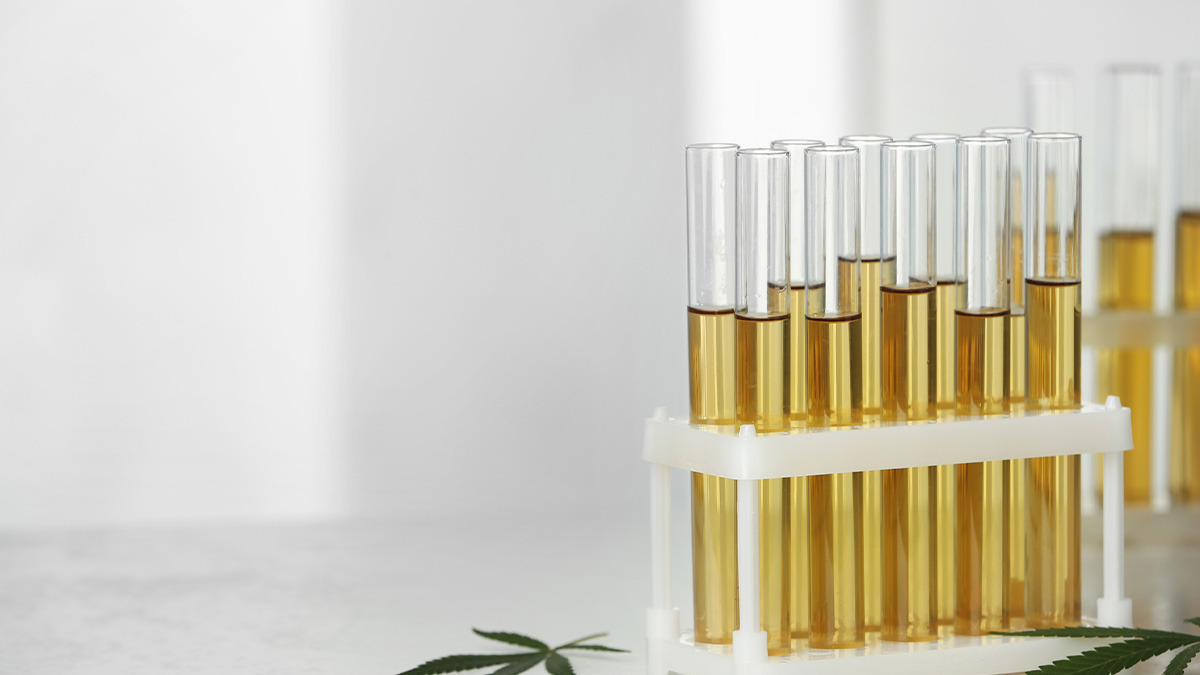Does CBD Oil Show Up on a Drug Test?

CBD oil is the rave for symptoms like anxiety, irregular sleep patterns, pain, and inflammation. CBD alone is non-intoxicating and shouldn’t cause you to have a positive drug test result.
However, some CBD oil products may contain traces of THC, the psychoactive cannabinoid. And since drug tests are designed to identify THC, you may test positive.
Even though most CBD oil producers claim that hemp-derived CBD oil won’t show up on a drug test, some athletes and public officers have reported testing positive on their screening after taking CBD oil as a supplement.
This article discusses the factors that may cause a positive THC result with CBD products and how to avoid them.
Does CBD Show Up On a Drug Test?
Drug tests are designed to detect illicit performance-enhancing substances, especially in office settings and during sports. As CBD has no mind-altering action, the government has no reason to test for it.
A conventional drug test will try to identify the presence of tetrahydrocannabinol (THC) or its metabolite, THC COOH, Tetrahydrocannabinol carboxylic acid.
Long story short, CBD won’t show up on a drug test simply because that isn’t what the drug test needs to find. Nonetheless, it is possible to design a test to identify CBD.
Does CBD Oil Contain THC?
The THC content of CBD oil depends on its source. Both CBD and THC are derived from cannabis, the umbrella term for hemp and marijuana.
Marijuana contains higher levels of THC than hemp, which is why CBD from marijuana may have detectable levels of THC.
When it comes to hemp-derived CBD oil, its THC content is influenced by the type of extract. There are three main types of CBD oil:
- Full-spectrum CBD: this type of CBD oil contains CBD and other compounds that naturally coexist with it. This includes terpenes, flavonoids, and other cannabinoids, such as CBG, CBC, CBN, or CBDA. Since full-spectrum CBD oils contain no more than 0.3% THC, they’re federally legal. People generally prefer full-spectrum CBD to other formats due to the entourage effect, where the aforementioned compounds work together to enhance the beneficial properties of the whole product.
- Broad-spectrum CBD: in broad-spectrum CBD oil, you can expect similar compounds to full-spectrum extracts — but without any THC. The psychoactive cannabinoid is removed from the crude extract during the next stages of extraction. It still evokes the entourage effect, but it may not be as pronounced as in full-spectrum CBD due to the lack of THC.
- CBD isolate: this is the purest and most concentrated form of CBD. It doesn’t have any odor and flavor and is usually sold in a powdered form or infused into the same formats as full-spectrum and broad-spectrum CBD. However, unlike the two, isolates come without the entourage effect, making them potentially less effective and more difficult to dose.
Reasons Why CBD Oil Users May Test Positive for THC
Buying CBD from a third-party verified CBD vendor will rarely get you in any THC-related trouble. Should it happen anyways, here are a few factors you may want to look at:
- Some CBD oils contain trace amounts of THC: A drug test may identify THC levels above 0.3%. Products with a high CBD content and THC levels like 2–5% won’t get you high, but they may produce a false-positive result on a drug test. If you want to make sure your product contains the declared amount of THC, check the certificate of analysis of your batch. And never buy from brands that don’t provide these documents.
- Cross-contamination: Cross-contamination isn’t that uncommon in the hemp industry. In fact, some THC may seep back into the extract while the components are being separated.
- Mislabelled products: Many CBD manufacturers follow similar preparation processes for their oils. Thus, they do not feel the need to test every batch for CBD content. Many CBD products in the market are mislabelled. A product that claims to be 100% CBD may contain 0.3% THC, while one with a claim of only 0.3% THC may have more than 1% THC.
How to Use CBD and Avoid a Positive Drug Test
If you have a significant game soon, or your employer has just announced an incoming drug test, you’re probably wondering how to use CBD and avoid testing positive for THC.
First, make sure your CBD oil comes from hemp and not from marijuana. If your company doesn’t disclose the source of its CBD oils, there’s a risk it might be using marijuana plants.
Then I suggest you check the type of CBD. If it’s a full-spectrum CBD product, you’ll need to confirm the amount of THC in the bottle. Broad-spectrum and isolate-based CBD oils should come without any THC, but then again, it’s a good idea to double-check your manufacturer’s claims.
That’s why third-party lab testing is so important. These documents from independent facilities provide reports about the product’s contents, including its cannabinoid profile, terpenes, and purity.
You are only guaranteed a negative THC test result when using a laboratory-tested pure CBD isolate.
Conclusion
CBD itself won’t show up on a drug test. That’s because these tests don’t look for CBD and its metabolites. Instead, they search for traces of THC in the tested sample. However, there is little regulation in the CBD industry, and some CBD brands may sell products that contain THC due to improper extraction methods or cross-contamination.
Before purchasing CBD, do a solid background check on any vendor you come across. Order CBD products only from transparent manufacturers who use non-GMO and pesticide-free hemp, employ CO2 extraction, and provide batch-specific certificates of analysis from a third-party laboratory.
The safest option when it comes to CBD and drug testing is to use lab-tested CBD isolate or a broad-spectrum product. Such formats shouldn’t contain any THC, minimizing the risk of getting a false-positive result.